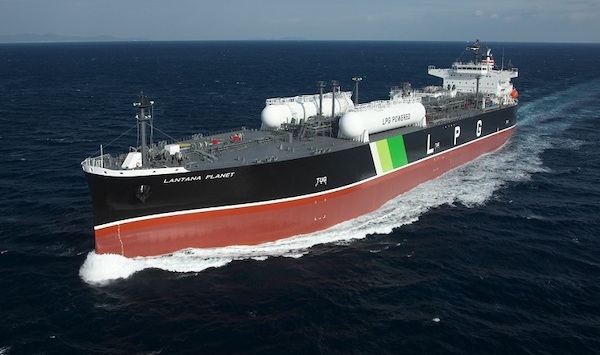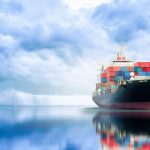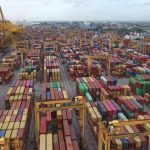On September 16, a naming ceremony was held at Sakaide Works of Kawasaki Heavy Industries Ltd. for a new VLGC (very large gas carrier) that NYK will charter to Astomos Energy Corporation, the world’s pre-eminent liquefied petroleum gas (LPG) company.
At the ceremony, the ship was named “Lantana Planet” by Mitsuru Yamanaka, executive vice president of Astomos Energy Corporation, and the ceremonial rope holding the vessel in place was cut by his wife. NYK senior managing executive officer Akira Kono attended together with others from NYK.
This vessel is a liquefied petroleum gas (LPG) dual-fuel VLGC and a sister ship of Lupinas Planet, which was completed in September this year. When LPG is used as fuel, exhaust gas from the ordered VLGC will contain at least 85% less sulfur oxide (SOx) and 15% less carbon dioxide (CO2) compared to conventional VLGCs equipped with fuel-oil engines.
NYK will further strengthen its long-standing close relationship with Astomos Energy and promote the development of an eco-friendly fleet to contribute to a low-carbon supply chain and realize a sustainable society.
Length overall: 229.90 meters
Breadth: 37.20 meters
Depth: 21.90 meters
Summer draft: 11.60 meters
Tank capacity: approx. 86,500 cubic meters (includes the on-deck tank capacity of 2,500 cubic meters
On February 3, 2021, NYK released the “NYK Group ESG Story,” which aims to further integrate ESG into the company’s management strategy and promotes activities that contribute to the achievement of the SDGs through business activities. On March 24, 2022, NYK released the updated “NYK Group ESG Story 2022,” which introduces initiatives for integrating ESG into the Group’s management strategies set forth in the “NYK Group ESG Story” and provides a partial explanation of the Group’s sustainable growth strategy from a long-term perspective.
In addition, NYK has established “Sail GREEN” as the company’s ESG brand to emphasize NYK’s efforts to reduce GHG emissions through the transport of goods and contribute to the eco-friendly supply chains of customers, regardless of the mode of transport (e.g., by sea or land, through terminals, etc.). This initiative is part of that.
Source: Hellenic Shipping News






